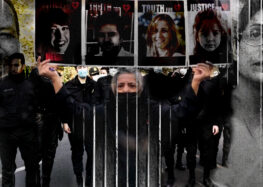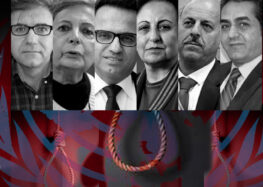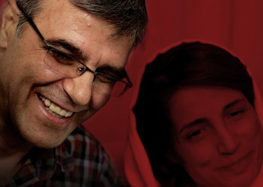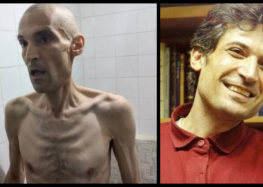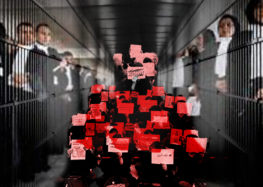Nasrin Sotoudeh: To Improve Women’s Rights, Rouhani Must Curb Power of Security Agencies
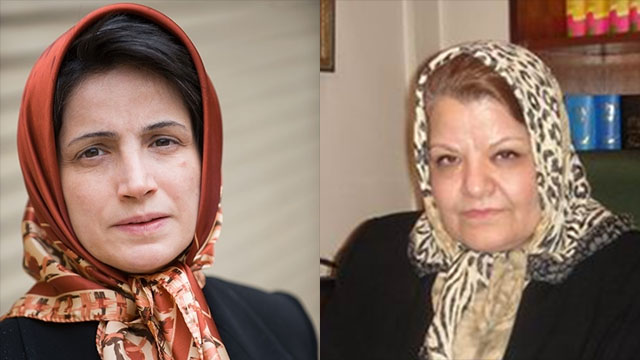
Prominent human rights lawyer and former political prisoner Nasrin Sotoudeh has called on newly re-elected President Hassan Rouhani to improve gender equality in Iran by counteracting the policies of Iran’s repressive security agencies.
“During the ninth and tenth governments (2005-09 under then-president Mahmoud Ahmadinejad), women’s organizations were obliterated under intense attack,” Sotoudeh told the Center for Human Rights in Iran (CHRI). “The truth is that Mr. Rouhani will not be able to carry out his promises regarding women without curbing the intelligence and security agencies. That’s the first thing we need: protection for civil and women’s rights activities.”
“Basically we need civil society foundations to formulate and convey policies, strategies and demands from women to the government,” said Sotoudeh, who lives in Iran. “There was a period when these foundations came into existence, but they were crushed. We need these foundations to be a bridge between women in society and the various governmental bodies and get them involved in a common goal through mutual cooperation.”
Continued Sotoudeh: “Secondly, not even reform-minded governments have ever shown an inclination towards choosing women as cabinet ministers. Women’s participation in government is no longer a taboo, and it would be unacceptable for a government that leans towards reform or moderation to form a cabinet without women.”
Charter on Citizen’s Rights
According to prominent Iranian human rights lawyer Farideh Gheirat, the Charter on Citizen’s Rights, a non-binding document signed by Rouhani in December 2016, could be an important tool for the women’s rights movement.
“There might be a lot of criticism against the Charter for the Rights of Citizens for repeating the same points in the Constitution,” said Gheirat, a member of the Committee for the Defense of Prisoners. “But I think Hassan Rouhani’s attention to women’s issues and call for equality between men and women are cause for great optimism. These things take time.”
“I voted for Rouhani and I expect him to make good on his promises to end discriminations against women in the laws,” said Gheirat, who lives in Iran. “I know this is more of a responsibility for the legislature, but as the head of the executive branch and originator of the Charter on Citizen’s Rights, the president can also help.”
According to Article 11, “Women have the right to active and effective participation in policymaking, legislation, management, implementation and supervision, and shall be provided equal social opportunities in accordance with Islamic norms.”
The charter has been criticized for being released without a path to implementation.
During his campaign for the May 19 presidential election, Rouhani was the only candidate who spoke favorably about raising the status of women in society.
On May 17 he announced a comprehensive plan to deal with “women’s uneven progress in various areas such as education and health as well as their participation in the economy and politics.”
“It’s wrong to think that men have a higher status or that they are more capable than women,” said Rouhani on May 22 at his first press conference after his re-election. “Of course men are better at some professions and women are better at others. (God) has given both special qualities. But women are not lower than men and keeping them inside the house does not make sense from social or legal standpoints.”

